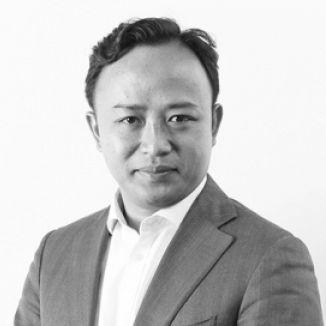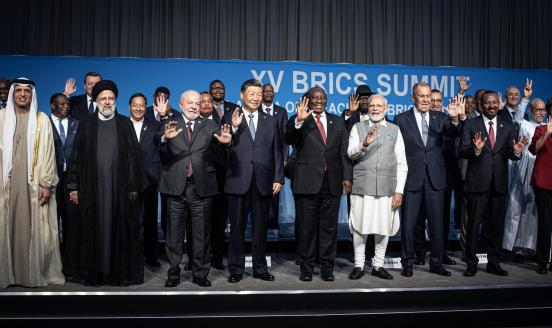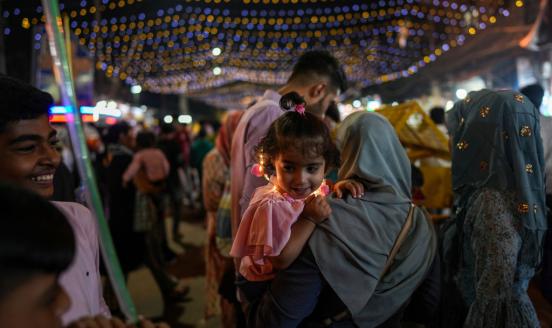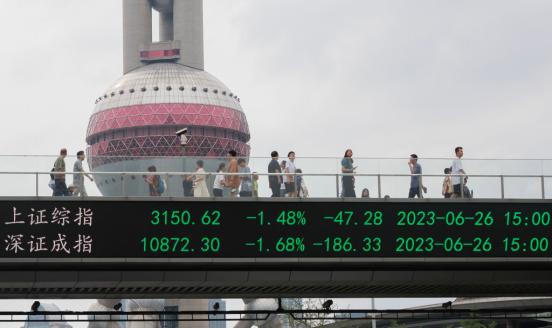China’s investment in Africa: consequences for Europe
How is Chinese investment impacting Africa, and what could be the consequences for Europe?
Speakers
Maria Demertzis
Senior fellow
Solange Chatelard
Research Associate, ULB,
Abraham Liu
Chief Representative to the EU Institutions and Vice-President European Region, Huawei,
Estelle Youssouffa
News Anchor, BFM TV International Affairs Consultant,
video & audio recordings
summary
China’s presence in Africa is steadily on the rise. One of the key channels through which China is influencing Africa’s economy is investment, particularly through its Belt and Road Initiative. Europe has traditionally been the largest investor in Africa, and the rise of Chinese investments is challenging the status quo. This panel discussion, chaired by Bruegel’s Deputy Director Maria Demertzis, reviewed the key traits of Chinese investment in Africa, both geographically and sector-wise, and its impact on European investors in the African region.
Solange Chatelard, Research Associate at ULB, discussed the history of Chinese foreign relations to show that China has been interested in the African continent for a long time. The Global South is of vital geostrategic interest to China. It is a key strategic relationship through which China has engaged with and participated in global politics, forging its changing role and position within a shifting international system. Initially, China’s interest in Africa came from its competition with Taiwan for international recognition as well as its mission to spread the communist idea internationally. Its push into Africa in the 1960s was driven by two fundamental rivalries: competition with the Soviet Union after the Sino-Soviet Split (1956), probably a more significant rival than Washington in the critical early years of the PRC's founding; and its diplomatic race with Taiwan (proxy war with the United States). Today, China’s engagement in Africa can be seen as a reaction to the large imbalances within China that have been built up by its rapid economic development in the last decades. Connecting with Africa, China is hoping to export its industrial overcapacities while securing resources that are not available domestically. Finally, Ms Chatelard spoke about the importance of private Chinese entrepreneurs that are moving to the African continent to start businesses and companies. She argued that these Chinese investments are distinct from China’s official and SOE driven investments; while the former investments follow a hard economic agenda, the latter follow a hard geopolitical agenda which allows for compromises on economic terms.
Alicia García-Herrero, Senior Fellow at Bruegel, presented recent data on China’s investment in Africa. She highlighted that on a global scale, very little investment is flowing into Africa. While China’s FDI into Africa has grown lately, Chinese FDI is small compared to Chinese lending to African countries, especially in the form of project finance. Comparing FDI stocks, Ms García-Herrero showed that European countries are still the largest investors in China. France’s FDI stock in Africa for example is larger than the ones of the United States or China. Differentiating between M&A and Greenfield investment, she showed that China is much more involved in M&A investment in Africa; in the last 3 years, China financed around a third of the total M&A volume in Africa. In contrast, European investments are particularly prominent in greenfield FDI. Looking at the sectoral distribution of Chinese investments, Ms García-Herrero highlighted that most investments are made in the energy, infrastructure and transportation sectors.
By contrast, relatively little investment goes into the manufacturing sector. It is unclear whether other investors such as the Europeans or the US invest differently. Finally, Ms García-Herrero looked into the jobs created by Chinese greenfield investments. She found that 1.78 jobs have been created with each $1 million invested, which is 20 percent lower than average job creation by Chinese greenfield investments overseas. This is due to the fact that half of total Chinese investments went into the real estate sector which creates very few jobs. Most of the jobs were created in the traditional sectors such as textile and metals. Evidently, on a continent with the world’s largest population growth rates, more investments in labour intensive industries would be very much welcome.
Abraham Liu, Chief Representative to the EU Institutions and Vice-President European Region at Huawei, shared some of his personal experiences that he made while working for Huawei on the African continent. He said that today, Huawei employs 5’000 workers in Africa who are working on bridging the digital divide in Africa. In the last decade, Africa has seen a massive increase in ICT penetration rates, which has given rise to many innovative products that benefited African consumers. Mr Liu mentioned as examples of such innovation the M-Pesa payment system that played an important role for commercial development in Kenya and RuralStar (a Huawei product) that intends to provide low cost internet access to remote villages. He closed by highlighting the importance of ICT as an enabler of the information society.
Estelle Youssouffa, Journalist and News Anchor with BFM TV, argued that China and Europe have two very different perspectives on Africa. Europe sees Africa mainly as the source of migration into Europe, and therefore as a problem ridden continent that needs aid. China, on the other hand, sees the African continent as a commercial market and has a better understanding of the diversity of African countries. Ms Youssouffa said that Europe will have to change its view of Africa and adapt to new circumstances, which include Chinese presence in Africa. In the current situation where the continent needs investments of $150 billion per year, European and Chinese investments would not crowd each other out and are both needed in Africa. Reflecting on the Economic Partnership Agreements between the European Union and African countries, Ms Youssouffa pointed out that African countries are particularly sceptical because of the uncertainties around Brexit, because they fear large inflows of European agricultural products and because they worry that the agreements will cement their position in the low-value parts of regional value chains. Finally, Ms Youssouffa highlighted the Chinese reaction to the recently attempted coup in Ethiopia to argue that as Chinese investments grow, China will also become more involved in the region with a strong interest in regional stability.
In the following Q&A session, the panellists discussed the role of Chinese manufacturing in Africa, the limits of the Chinese export-led growth model and whether China could team up with other actors such as the EU and the US to improve investments in Africa. On the question how Huawei is dealing with geopolitical risks, Mr Liu explained that ICT is one of the most globally connected industries with globally distributed research and development networks, global supply chains and globally operating services. Nevertheless, Mr Liu expressed confidence that Huawei is well prepared to deal with the confrontation with the US administration. The panel concluded the event with the observation that while China’s push into Africa is often seen as an attempt to build up Chinese-owned manufacturing capacity outside of its territory (“Made by China” instead of “Made in China”), this narrative is not supported by the data. According to Ms García-Herrero, no one, neither China nor the EU, is really investing in the manufacturing sector in Africa. Much larger investments, as opposed to the currently ubiquitous lending, would be required to seriously develop the manufacturing sector on the African continent.
Notes by Michael Baltensperger








